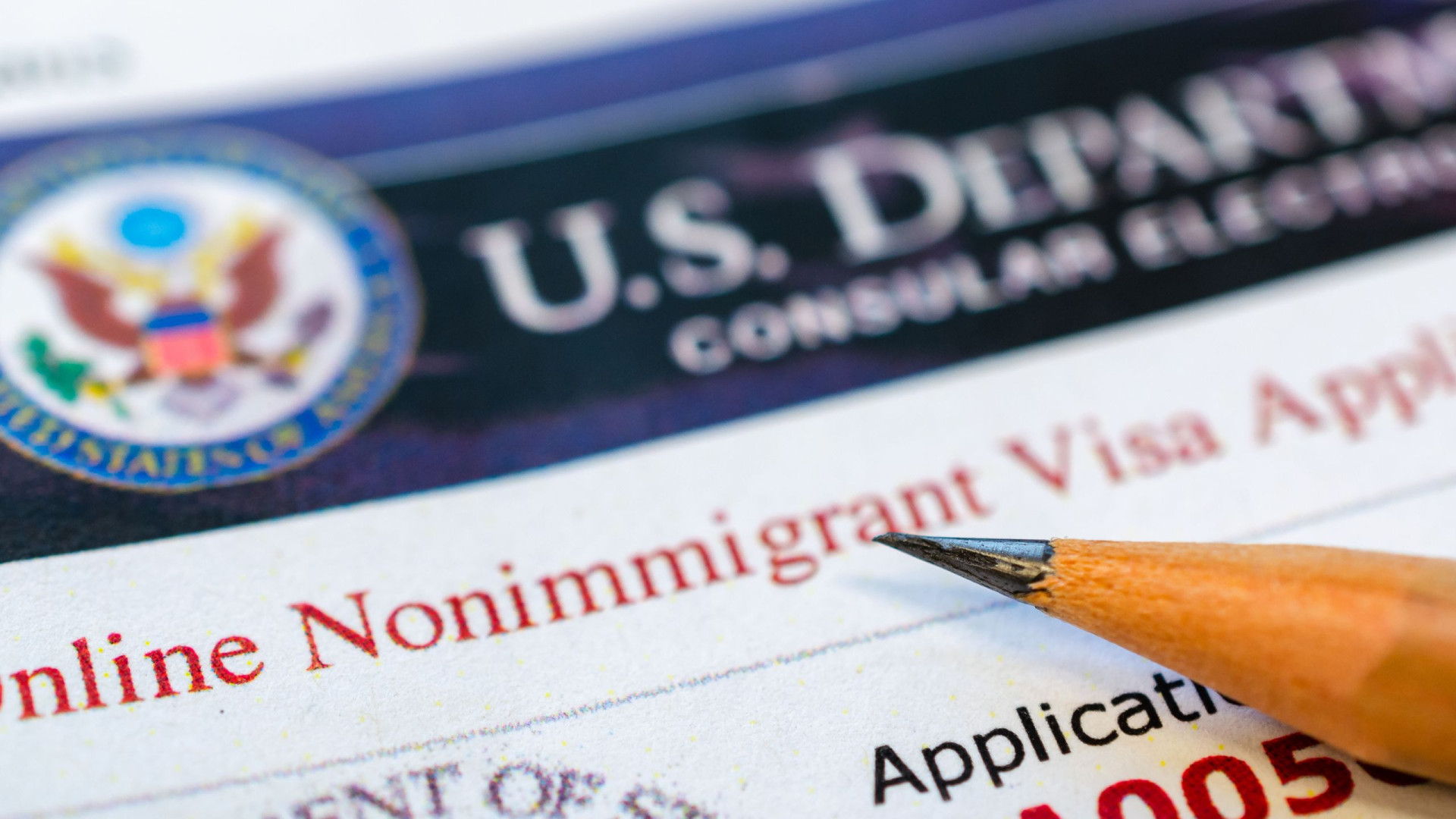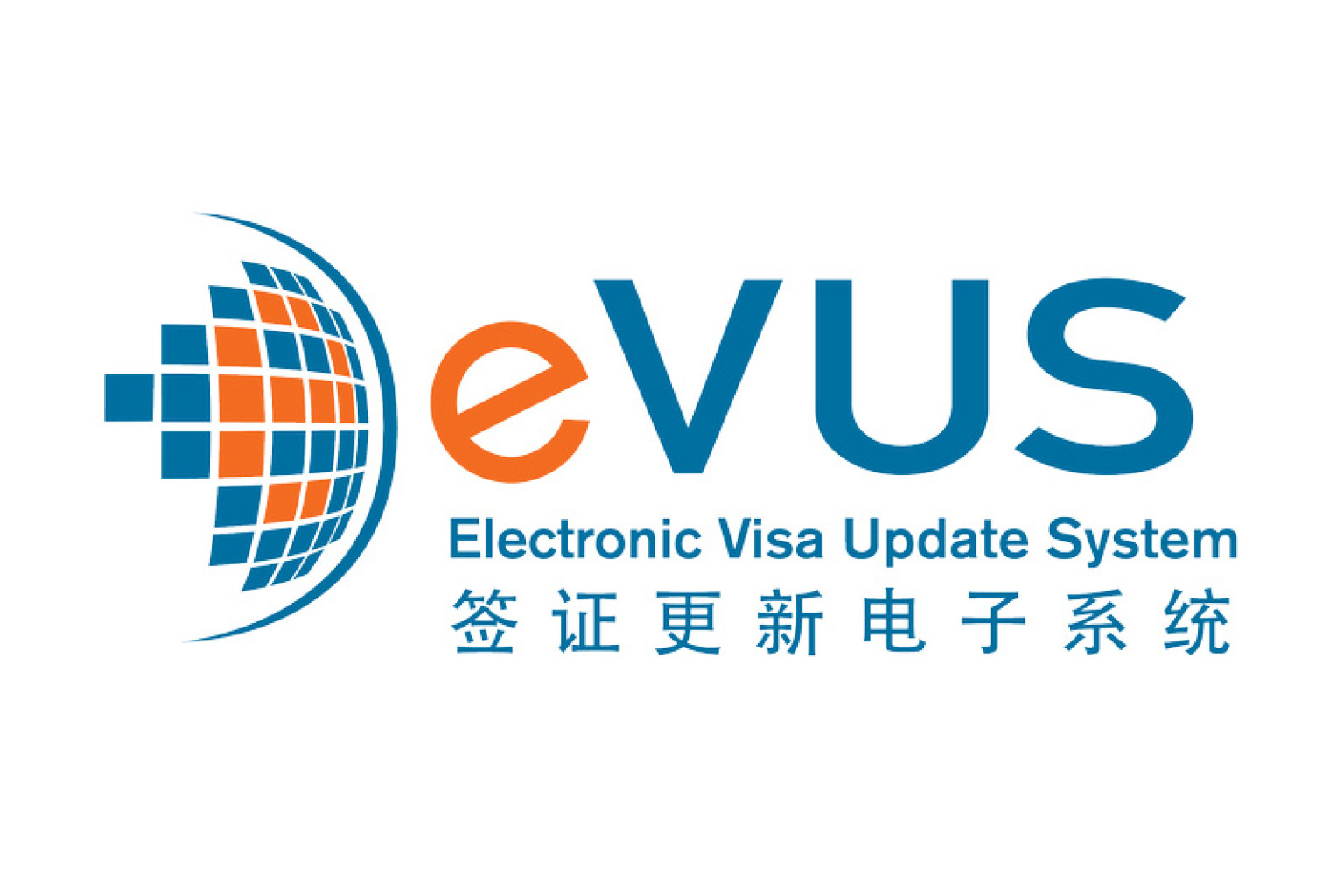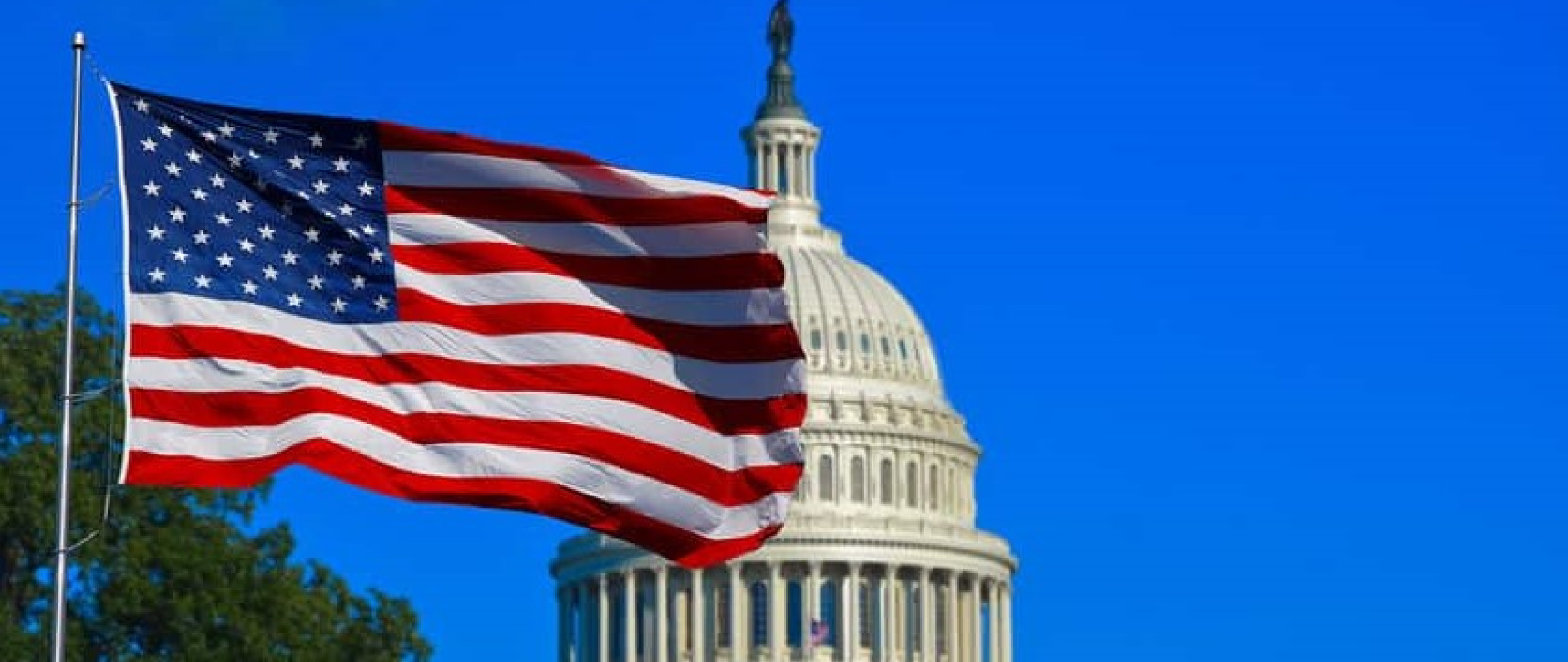Updated on 19.09.2025
In recent months, there have been numerous changes to US visas and entry requirements to the USA, which have had a noticeable impact on all applicants and travelers. Here is an overview of the most important changes.
Share article:

In recent months, the US government has made a number of adjustments to visa and entry regulations. These changes not only affect the costs and processes involved in the application process, but also stricter checks. For companies, in addition to the actual application process, the focus is primarily on the strategic planning of international business trips and dealing with stricter checks. For private individuals, on the other hand, transparent procedures and better calculability of travel costs are crucial.
Below we provide an overview of the most important changes and their potential impact on international business activities and travel to the USA.
With the adoption of the "One Big Beautiful Bill Act" in July 2025, the so-called "Visa Integrity Fee" was introduced, which means rising costs for travelers and companies. In future, the additional fee of USD 250 will be charged in addition to the existing costs for the applying for a US visa and applies to applicants for almost all non-immigrant visas (e.g. B-1, B-2, F, J, E, L visas).
The US government uses the "Visa Integrity Fee" to finance enhanced security measures and to cope with rising application numbers. Officially, the fee is intended to ensure improved integrity and security in the US visa system. The focus is on new verification procedures and increasing the capacity of the immigration authorities.
This means a noticeable additional financial burden for applicants. The new fee is payable directly when the visa is issued and thus supplements the previous Consular and visa fees. For the first time, it is planned that a refund of the amount will be possible after the visa expires if all residence requirements are met. However, the exact modalities for this, including the time of introduction and repayment process, have not yet been finalized and are currently being further developed by the US government.
Critical voices criticize the lack of transparency regarding the actual use of funds and point out that there is still no clear process for paying out refunds. As things currently stand, a start date of October 1, 2025 (at the beginning of the new US tax year) is expected for the obligation to pay the fee. However, a specific date has not yet been set. Patience is still required for detailed questions regarding payment processing and possible refunds.
Our agency follows all developments closely and is available to you as a competent contact for all questions relating to the new fee regulations and the best possible process for your US visa applications available.
As a specialized visa agency, we offer comprehensive support in all steps of your US visa matters - from the initial analysis and application to successful entry. Our aim is to make the entire process transparent, time-efficient and comprehensible for applicants.
Our service provides you with decisive advantages:
Rely on our expertise and take the pressure off your team so that you can concentrate on your business goals in the USA.
The Electronic System for Travel Authorization (ESTA) remains the preferred option for citizens of visa waiver countries for business and private travel to the USA. From September 30, 2025, the US government will increase the ESTA fee from 21 to 40.27 $ - a near doubling that both private travelers and companies should factor into their budget planning. Families and groups will be particularly affected in future, as the fee must be paid for each individual, including minors.
Compared to traditional visa procedures, the ESTA remains the fastest and cheapest way for short stays. The permit is still valid for two years and allows multiple entries within this period. In order to benefit from the existing conditions, it is advisable to submit ESTA applications before the deadline if possible.
There have also recently been relevant changes at country level:
ESTA applications for Hungarian nationals were previously subject to significant restrictions: Only people born in Hungary could apply, the permits were valid for a maximum of one year and only authorized a single entry. Now the regular regulation is to be reintroduced by September 30 at the latest - for all Hungarian nationals, with a two-year validity and the possibility of multiple entries. For companies with business travelers from Hungary, this means a significant increase in planning security
In addition to the changes to the ESTA program, the US government has also adapted the Electronic Visa Update System (EVUS). This system only affects Chinese nationals who are in possession of a ten-year B-1/B-2 visas are. They must regularly update their data in EVUS before they are allowed to enter the USA.
EVUS thus pursues a similar goal to ESTA: it is intended to enable the US authorities to check security-related information in advance and systematically control entry. However, while ESTA allows citizens from visa waiver countries visa-free access for short stays, EVUS serves as a complementary measure to already granted visas. B-1/B-2 visas.

The most decisive change concerns the fees: EVUS was previously free of charge, but from September 30, 2025, a fee of 30 US dollars will be charged. With both ESTA and EVUS, the US government is focusing on greater monetization of its entry systems. For companies with business relationships with China, employees based there or private travelers, the introduction of the EVUS fee means an additional burden.
Particular attention must be paid to the latest regulation on visa applications by so-called Third Country Nationals (TCNs).
Previously, third country nationals, i.e. applicants without citizenship or permanent residence/center of life in the country of the respective US consulate, were able to apply for a visa there under certain conditions. This option was significantly expanded, particularly during the Covid pandemic, to compensate for long waiting times in individual countries.
With effect from September 6, 2025 this practice has now been abolished. In future, visa applications may only be submitted by nationals or persons with proven residence in the country of the US consulate.
In concrete terms, this means
For travelers, the new regulation means significantly less flexibility: visa applications are now only possible in the home country or at the official place of residence. This leads to additional costs, longer waiting times and less planning security. Many US consulates will only accept applications from third-country nationals, if at all, in strictly exceptional cases. If you are unsure whether an application is possible, it is advisable to contact the relevant US consulate directly in advance.
The so-called Reciprocity Schedule regulates how long US visas are issued to citizens of certain countries, how many entries they allow and what additional fees are charged when applying for a visa. This is based on the principle of reciprocity - the USA adjusts its conditions according to the entry regulations of other countries for US citizens.
In July 2025, the U.S. Department of State tightened the requirements for over fifty countries. Specifically, the validity period of many B-, F-, H-, J-, M- and O-Visa reduced to just three months and limited to a single entry. Previously, these Visa categories usually longer terms and multiple trips. Visa applications that were approved before the new rules came into force will retain their original validity.
Travelers from certain countries in Africa (e.g. Nigeria, Ghana, Cameroon, Ethiopia) as well as from parts of Southeast Asia (e.g. Laos, Cambodia, Myanmar) and occasionally also from China are particularly affected. Under the updated Reciprocity Schedule, they often only have short visa validity periods of a few months and are restricted to a single entry. This means that applications have to be resubmitted more frequently and additional consulate appointments have to be made - with corresponding costs and time expenditure. This leads to significantly less planning security, both for international projects and for private trips. Travelers from western industrial nations, on the other hand, are generally not affected by these restrictions and continue to benefit from longer validity periods and multiple entries. Early information about the current regulations and forward planning are therefore particularly important for applicants from the affected countries.
The Interview Waiver Program has made things considerably easier for many applicants in recent years - personal visits to the consulate were no longer necessary and the application could be submitted by post. This has saved valuable time, especially for business travelers and frequent travelers. With effect from September 2, 2025, the U.S. Department of State has significantly tightened the rules and reduced the Interview Waiver Program to a very limited group of people:
Overall, the requirements could lead to longer waiting times for appointments at the US consulates. To avoid delays, early planning and preparation of applications is more important than ever.

Back in June, US President Trump signed a proclamation that came into force on June 9 and massively restricted entry for certain nationals. In the proclamation of December 16, this travel ban was extended to a total of 39 countries.
A complete entry and visa ban for immigrant and non-immigrant visas (NIV and IV) applies to nationals from: Afghanistan, Burkina Faso, Chad, Eritrea, Equatorial Guinea, Haiti, Iran, Republic of Congo, Laos, Libya, Mali, Myanmar, Niger, Sierra Leone, Somalia, Sudan, South Sudan, Syria and Yemen. In addition, entry on travel documents from the Palestinian Authority (PA) is also completely suspended (regardless of nationality).
Nationals of the following 19 countries are not eligible for U.S. immigrant visas (IV) or U.S. nonimmigrant visas (NIV) in categories B-1, B-2, B-1 / B-2, F, M, J:
Angola Antigua and Barbuda, Benin, Burundi, Dominica, Côte d'Ivoire, Gabon, Gambia, Cuba, Malawi, Mauritania, Nigeria, Senegal, Tanzania, Togo, Tonga, Venezuela, Zambia and Zimbabwe.
Since August 20, 2025, for applicants from certain countries have been new requirements for B-1/B-2 visas. These were extended to various other countries in the following months.
Citizens of these countries must deposit a security bond (“visa bond”) of $5,000, $10,000, or $15,000 during the visa application process, which will be refunded once all immigration requirements have been met.
The selection of the countries concerned is based on increased B-1/B-2 overstay rates according to the Entry/Exit Overstay Reports of the Department of Homeland Security.
The visa bond security deposit amounts to $5,000, $10,000, or $15,000 and is determined by the consular officer at the U.S. consulate on the day of the visa interview. Acceptance of the bond conditions and payment are made exclusively via Pay.gov and only after express request by the consular officer via a direct payment link. Payments via third-party providers are not permitted.
Important: The deposit of a bond does not guarantee the issuance of a visa or entry into the country. If a payment is made without prior instruction from the consular officer, there is no entitlement to a refund.
Upon request by consular officials at the US consulate, the DHS Form I-352 must also be submitted.
The entry is only possible via selected airports in Boston (BOS), New York (JFK) and Washington (IAD).
Since August 20, 2025
-Malawi
-Zambia
Since October 11, 2025
-Gambia
Since October 23, 2025
-Mauritania
-São Tomé and Príncipe
-Tanzania
Since January 1, 2026
-Bhutan
-Botswana
-Guinea
-Guinea-Bissau
-Namibia
-Turkmenistan
-Central African Republic
From January 21, 2026
-Algeria
-Angola
-Antigua and Barbuda
-Bangladesh
-Benin
-Burundi
-Cabo Verde
-Cote D'Ivorie
-Cuba
-Djibouti
-Dominica
-Fiji
-Gabon
-Kyrgyzstan
-Nepal
-Nigeria
-Senegal
-Tajikistan
-Togo
-Tonga
-Tuvalu
-Uganda
-Vanuatu
-Venezuela
-Zimbabwe
The decisive factor in determining whether a B-1/B-2 applicant is affected by a visa bond payment is the applicant's nationality, not the location where the application is submitted! Dual nationals who apply with a passport of a nationality that is not affected by visa bonds are not subject to this regulation. Furthermore, the visa bond regulation applies exclusively to new B-1/B-2 visa applications and has no retroactive effect. This means that persons with the affected nationalities who already hold a valid B-1/B-2 visa are not affected; their visas remain valid without restriction. An obligation to post a visa bond can only be determined by the US consulate during a visa interview in the context of a new visa application.
DHS reviews potential violations against the immigration law of the travellers and submits appropriate cases to USCIS for a bond forfeiture decision. These include in particular:
If USCIS determines that the bond conditions have been violated, the security deposit forfeited to the US government.
The bond will be refunded in full if all immigration requirements regarding the stay in the USA are met, in particular: timely departure, failure to use the visa, or denied entry at the US border crossing. Repayment is made automatically via the US authorities' system pay.gov. There is currently no information available regarding the time frame for reimbursement.
The latest changes to US visas, ESTA, EVUS and Third Country National applications clearly show this:
Entering the USA today requires more preparation, transparency and structure. For companies, this means carefully coordinating travel plans, budgets and compliance guidelines. Individuals should plan for additional fees and longer lead times. However, with early planning, clear information and professional support, unnecessary hurdles and surprises can be avoided.
If you are unsure or have questions about the new regulations, as an experienced US visa agency we are always on hand to advise you. Our team will support you in analyzing your individual visa options, strategically planning your trips or employee assignments and correctly preparing all applications. This allows you to keep an eye on the overall costs and plan your trips to the USA efficiently and stress-free.
Date:
Wir und unsere Partner nutzen Cookies, um personenbezogene Daten wie z.B. Browsing-Daten zu speichern und abzurufen, um z.B. Inhalte und Werbung bereitzustellen und zu personalisieren sowie die Verwendung der Website zu analysieren und das Benutzererlebnis zu verbessern. Sie erfahren mehr über die Zwecke, für welche wir und unsere Partner Cookies einsetzen, wenn Sie unten auf den Button „Cookie Einstellungen“ klicken. Hier können sämtliche Einstellungen auch geändert werden. Nachträglich kann man jederzeit seine Cookie-Auswahl überdenken oder seine Einwilligung widerrufen, indem man auf den Link zu den Cookie-Einstellungen im Footer unserer Webseite klickt. Beachten Sie bitte, dass das Blockieren einiger Cookie-Typen unsere Möglichkeiten zur Bereitstellung von auf Ihre Interessen zugeschnittenen Inhalten haben kann oder einige Funktionen der Webseite nur eingeschränkt zur Verfügung stehen.
Durch klicken auf “Alle Cookies akzeptieren” stimmen Sie unserer Nutzung und der Weitergabe Ihrer Daten an unsere Partner zu.
Social media, anti-Americanism and ongoing reviews
The current US visa regulations stipulate that all applicants must disclose their social media data from the last five years as part of the application process. This applies to both the platforms used and the respective usernames so that the authorities can clearly assign a person's online activities. In addition, a stricter requirement applies to applicants in categories F, M and J - i.e. students, exchange programs and similar groups - who must set their social media accounts to "public" during the processing period so that the US authorities have direct access to content. In this context, private settings are often seen as an attempt to conceal information and can lead to rejection.
The evaluation by the US authorities is not limited to security-related anomalies. Statements or activities that could be construed as hostile towards the USA, its politics, culture or institutions are also taken into account. Such content can lead to rejection during the application process, but can also have consequences even after a visa has been issued. This is because a system of continuous vetting has been in place since 2025: An estimated 55 million visas already issued worldwide are subject to continuous vetting. Subsequent violations of immigration or criminal law can also lead to a visa being revoked at any time.
As US visas can now also be checked regularly after they have been issued, it is advisable to ensure that you have proper documentation and comply with the regulations when traveling to the US, to clearly state the purpose of your stay and to ensure that your own communication is as consistent as possible.